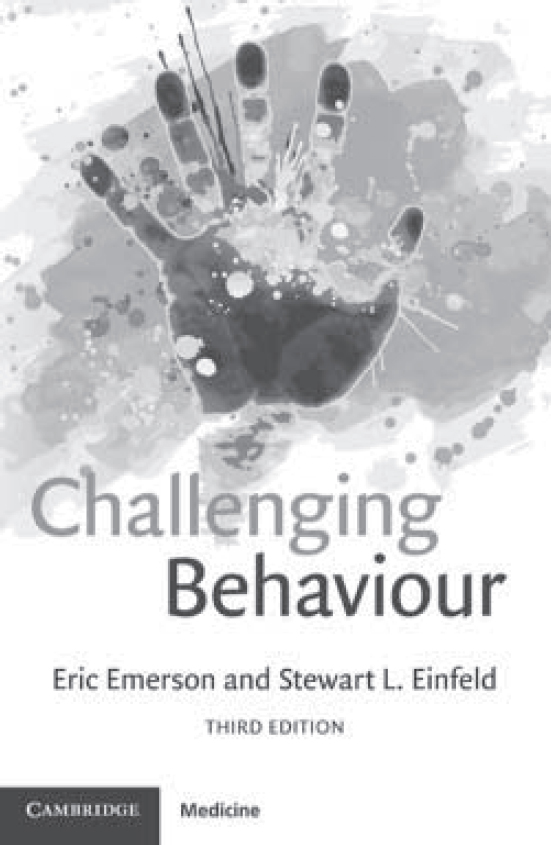
‘Challenging behaviour’ is an umbrella term used to describe any behaviour that puts the person and those around them at risk. These behaviours range from verbal or physical aggression to self-injurious acts to obsessional or ritualistic conduct and are commonly found in people with intellectual disability. Emerson is a well-known researcher in the field of intellectual disabilities and has made valuable contributions in the field of challenging behaviour. The definition of challenging behaviour he proposed is widely used and commonly cited in the literature.
This book focuses primarily on people with severe intellectual disabilities, although the broad principles outlined are applicable to individuals with all degrees of intellectual disability. The first section aims to improve the reader’s understanding of challenging behaviours. In the opening chapter, Emerson and Einfeld emphasise the importance of the social context in defining challenging behaviour. Then, the prevalence and risk factors associated with challenging behaviour are described. Chapter 4 summarises various behavioural phenotypes in specific genetic disorders, such as fragile X syndrome, psychiatric disorders and general health conditions associated with challenging behaviour. The behavioural models used for analyses of challenging behaviour are described in detail.
In the second section of the book, Emerson and Einfeld examine the design and implementation of interventions and support for people with intellectual disability and challenging behaviour. In the absence of a robust literature on the use of psychotropic medication for challenging behaviour, the authors provide a comprehensive account of behavioural interventions, which will be very useful for psychologists, psychiatrists and other professionals involved in the care of people with intellectual disabilities. Towards the end, the situational management of challenging behaviour is explored. The authors propose a range of specific strategies, from active listening and use of restraints to the use of psychotropic medication.
I feel that the authors could have explored the psychodynamic approach in the assessment and management of challenging behaviour. Similarly, their comments on the use of complementary and alternative therapies in people with intellectual disabilities and challenging behaviour would have been interesting to examine further. However, the book provides a good mix of theoretical knowledge and clinical examples. It contains up-to-date information on this important topic, relevant not only to psychiatrists, but also to other professionals working with people who have intellectual disabilities.



eLetters
No eLetters have been published for this article.